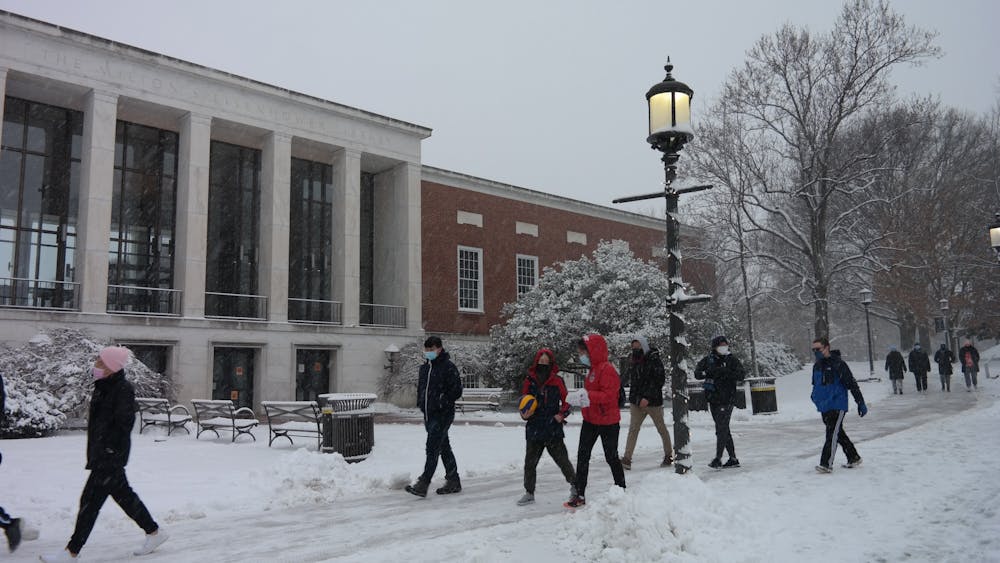The Student Government Association (SGA) unanimously passed a contact tracing resolution and discussed University programming for the hybrid semester during its weekly meeting on Tuesday, Feb. 23.
Senior Class Senator JJ Tie introduced the Contact Tracing Resolution in response to the COVID-19 outbreak among on-campus undergraduates in early February.
According to Tie, the resolution sets the stage for further discussion about increasing contact tracing measures to improve public health outcomes for the University community.
“It is just a starting point for the admin to incorporate contact tracing into Prodensity,” she said.
An earlier version of the resolution made specific references to the COVID-19 contact tracing app NOVID, but all mentions of NOVID were removed to allow for greater flexibility in how the University approaches contact tracing.
During the discussion on this resolution, Executive President Sam Mollin called for greater specificity throughout the resolution to clarify its purpose and scope.
Rather than tabling the time-sensitive resolution to be revised and revisited during a future meeting in March, SGA took an eight-minute recess to amend the language of the bill before voting on it.
Freshman Class Senator Ben Scherzer provided a brief summary of the friendly amendment made to the Contact Tracing Bill.
“We [want] to have the most latitude in figuring out the best solution instead of binding ourselves to just one change or set of changes now,” he said.
SGA also hosted Director of JHUnions & Programming Hal Turner and Executive Director of Student Engagement Laura Stott, who gave a presentation on University programming.
Turner highlighted how virtual events — such as the Student Involvement Fair, Hop-A-Palooza, Hoptoberfest, Mattin Center Halloween, Last Day of Classes and Lighting of the Quads — were run differently compared to pre-pandemic years.
“[There’s] a lot of fun innovation that we’ve been putting into the fall,” he said. “We’ll... try and bring back some of the in-person elements to the extent that we’re able for our hybrid format.”
Stott explained that programming this spring will focus on new ways to celebrate campus traditions like Blue Jay Opening Day and Spring Fair. According to her, the University hopes to engage students currently in Baltimore as well as including those in other time zones.
Stott also discussed the University’s intent to promote spring break days, which have been dispersed throughout the semester, as a time for students to unwind from academic stressors, but emphasized the need for student ideas and input to promote these initiatives.
Executive Treasurer Addy Perlman, who sits on the SGA committee that is planning upcoming spring break activities, emphasized the importance of treating upcoming spring break days as actual breaks.
“Right now, the theme is ‘Rest your body; rest your mind,’ and ‘Move your body and move your mind,’ so it’s engaging, but also take those days to relax,” she said. “This is not a catch-up day for work, this is just to engage and also rest.”
Following the presentation, SGA members brainstormed ways to address potential concerns as well as posit ideas for activities that students may want to see and participate in this semester.
Discussions focused on how to deal with Zoom fatigue, workarounds for students ignoring mass email communications, shifting the timing of events and the feasibility of setting up outdoor paintball and food-related events.
According to Director of Student Leadership and Involvement Calvin Smith, University implementation of these suggestions will ultimately depend on marketing resources and public health guidance, though the University valued the student input.
“We know that student feedback is a critical component to any of the work that we do,” he said.





